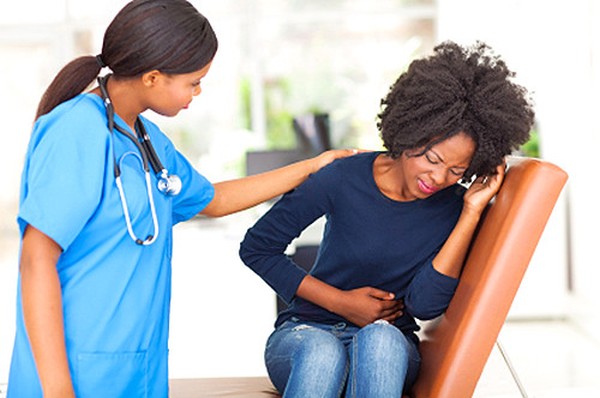Twenty Point Plan for Avoiding Food Poisoning
- Details
- Written by Dr Vernon Coleman

The widespread use of preservatives to keep food in good condition has not stopped the incidence of food poisoning. The majority of food borne infections are transmitted via meat and meat products. Here are twenty tips to help you reduce your chances of acquiring a food transmitted infection.
- Make sure that you always check the sell by date on any packaged food you buy. Sell by dates are important — and they are there for a reason. If you buy food that has gone past its sell by date you may save money but you could be putting yourself at risk.
- Don’t ever buy tins which are rusty or bulging or badly damaged (the food inside might be contaminated) and do not buy packets of food if the packet is damaged or torn.
- When choosing food from a freezer in a store make sure that the freezer is working (i.e. is cold) and that the food is cold when you take it out. Make sure that you put the food into your freezer as soon as possible and if possible transport it home in a ‘cool bag’. If you drive around with cold food in your car and it defrosts then the growth of bacteria will be encouraged.
- Don’t ever buy anything from a food shop which looks dirty. And don’t buy anything from a food shop assistant who has dirty hands. The reason for this is simple: if the manager of the shop can’t be bothered to ensure that the shop and his staff are clean then the chances are that he is not too fussy about food hygiene either.
- When you are buying eggs don’t buy eggs which are cracked (it is obviously easier for the egg inside to become infected if the shell is cracked). And try to buy eggs which have been laid by free range chickens rather than chickens kept in tiny cages. (Apart from the moral reasons, chickens which are allowed to roam around are likely to be healthier than chickens kept in cages.)
- When you store food in the fridge, try to keep different types of food apart from one another in order to reduce the risk of cross contamination. Make sure that you put meat — and any other foods which are defrosting — on a plate at the bottom of the fridge so that drips won’t fall onto other foods. Always keep meat (a high risk source of infection) well away from other foods.
- Do make sure that your fridge is kept cold enough. The temperature inside your fridge should be below 3 degrees Centigrade. If your fridge is too warm then the food in it will spoil so make sure that you check the thermostat if necessary. Your fridge will work more efficiently if you defrost it regularly.
- Never ever re-freeze food which has been frozen and already thawed. Thawing increases the number of bacteria and refreezing food increases your chances of being infected.
- If you eat meat it is vitally important that you make sure that it is completely thawed before you start to cook it. If you don’t do this then there is a risk that the middle of the meat will still be frozen when you start to cook it. If this happens then when you think all the meat is cooked, the centre will still be uncooked — and probably full of bugs. It is particularly important that poultry is properly thawed before being cooked.
- Once an item of food has been thawed make sure that you use it quickly. Do not leave it sitting around in the kitchen — if you do then micro organisms will be given a chance to multiply.
- Always wash vegetables and fruit thoroughly in running water before using them. You should, of course, even wash food which you have grown yourself since some bugs can be carried in the soil.
- Take care to ensure that all the worktops and equipment in your kitchen are kept scrupulously clean. Wash with soapy water; rinse afterwards in clean water and dry surfaces and utensils carefully with a clean cloth. Dirty cloths are one of the commonest causes of infection in the kitchen. It is better to let dishes and utensils drip and drain if possible. Do not use old or dirty dish cloths and change towels regularly (disposable paper towels are best because they keep the risk of cross infection to an absolute minimum).
- Make sure that you wash your hands thoroughly before you start preparing any food — and after any interruption. If you have any infected or open wound make sure that you always wear a proper plaster or bandage (both to protect the food you are handling and yourself). Always wash your hands thoroughly after handling meat of any kind.
- When food has been cooked you should, if possible, eat it quickly. If food which has been cooked is allowed to cool then any bugs in it will multiply. The risk increases with the length of time that cooked food is left. Cooked food which is stored should be kept cold in the fridge or hot in the oven. If you intend to eat foods which have been previously cooked make sure that you thoroughly reheat them. When reheating food it is essential that all parts of the food reach a temperature of at least 70 degrees Centigrade.
- The best way to kill the bugs in meat, poultry or fish is to ensure that you cook the food properly. Avoid dishes which include raw meat, raw poultry or raw fish.
- Anyone pregnant, elderly or frail should avoid soft cheeses (such as Brie and Camembert) and blue veined cheeses since these can be contaminated with listeria bacteria.
- Don’t eat raw eggs or dishes prepared with raw eggs (if you do, the risk of salmonella poisoning will increase).
- Cats, dogs and even birds can all carry infections which may be dangerous to you so don’t let them clamber over surfaces where you prepare or serve food. And if you handle an animal make sure that you wash your hands thoroughly before preparing or eating food. Make sure that you keep feeding dishes and serving utensils intended for animals well away from those which you use. Wash up dishes used by animals in different water.
- Don’t put warm food into the refrigerator — if you do then the temperature inside the fridge may rise to an unsafe level and other food stored there may be spoilt.
- Make sure that you know how to use all the equipment in your kitchen — and check that your oven, fridge and microwave (if you use one) are all working properly. Be careful to make sure that you follow the manufacturer’s instructions carefully.
Taken from Meat Causes Cancer (and Other Food for Thought) by Vernon Coleman which is available as a paperback and an eBook on Amazon.
© 2022 crystalwind.ca. All rights reserved.
Liked this article? Dive deeper into personal growth and wellness! Check out CrystalWind.ca for spiritual wisdom or explore AromaWorx.ca for natural well-being tips. Spread the positivity—share this with friends on their happiness journey!
Let’s Chat! Drop Your Thoughts Below! ![]()
Disclaimer Health
All post and information provided within this blog is for educational and informational purposes only, and is not to be construed as medical advice or instruction. No action should be taken solely on the contents of this website. Please consult with your healthcare professional before making any dietary or lifestyle changes or taking supplements that may interfere with medications. Any products or information discussed are not intended to diagnose, prevent, treat or cure any illness, disease or lifestyle. Please consult your physician or a qualified health professional on any matters regarding your health and wellbeing or on any opinions expressed within this website.
Latest Articles

Imagine a world of inspiration and healing, free for all—made possible by YOU!
Donate Now—Ignite the Magic at CrystalWind.ca!

Epilepsy - Finding A Cure
Your donation can make a difference!
Help us find a cure – donate now!
Unlock Your Light: Join Lightworkers Worldwide on CrystalWind.ca!
Follow Us!
Featured This Month
The Vine: September 2nd - September 29th
The Autumnal Equinox ( Alban Elfed ) Celtic Symbol : The White Swan Read more
Mabon in Modern Times: Fresh Takes on the Au…
The Mabon season begins somewhere around the 21st-22nd of September and cont... Read more
Mabon Magic: Ideas For Fall Decoration And R…
Welcome (almost!) to Fall! We’re turning the Great Wheel once again, toward ... Read more
Sweet Violet
Sweet Violet Faithfulness and modesty. “I will always be true to you.” Helps... Read more
Watermelon Tourmaline
Synonym: Rainbow Tourmaline The watermelon tourmaline is a rare variety t... Read more
Virgo Mythology
The Virgo Myth In all of constellation mythology, few legends are as misund... Read more
Peridot: The Healer's Stone
Peridot has been used as a Power Stone for centuries. Peridot fosters emotio... Read more
Crystals for Virgo
As the warmth of summer begins to soften into the crispness of autumn, the Sun... Read more
Sun in Virgo
An Overview of Sun Sign Characteristics for Virgo Virgo is guided by Mercur... Read more































































































































































